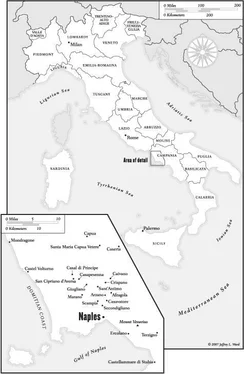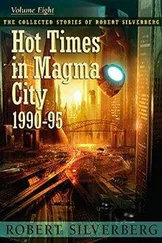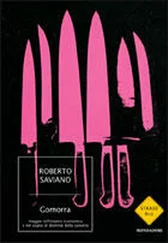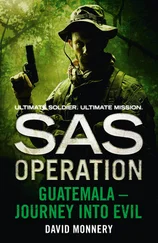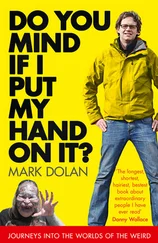Roberto Saviano - Gomorrah - A Personal Journey into the Violent International Empire of Naples’ Organized Crime System
Здесь есть возможность читать онлайн «Roberto Saviano - Gomorrah - A Personal Journey into the Violent International Empire of Naples’ Organized Crime System» весь текст электронной книги совершенно бесплатно (целиком полную версию без сокращений). В некоторых случаях можно слушать аудио, скачать через торрент в формате fb2 и присутствует краткое содержание. Жанр: Старинная литература, на английском языке. Описание произведения, (предисловие) а так же отзывы посетителей доступны на портале библиотеки ЛибКат.
- Название:Gomorrah: A Personal Journey into the Violent International Empire of Naples’ Organized Crime System
- Автор:
- Жанр:
- Год:неизвестен
- ISBN:нет данных
- Рейтинг книги:5 / 5. Голосов: 1
-
Избранное:Добавить в избранное
- Отзывы:
-
Ваша оценка:
- 100
- 1
- 2
- 3
- 4
- 5
Gomorrah: A Personal Journey into the Violent International Empire of Naples’ Organized Crime System: краткое содержание, описание и аннотация
Предлагаем к чтению аннотацию, описание, краткое содержание или предисловие (зависит от того, что написал сам автор книги «Gomorrah: A Personal Journey into the Violent International Empire of Naples’ Organized Crime System»). Если вы не нашли необходимую информацию о книге — напишите в комментариях, мы постараемся отыскать её.
Gomorrah: A Personal Journey into the Violent International Empire of Naples’ Organized Crime System — читать онлайн бесплатно полную книгу (весь текст) целиком
Ниже представлен текст книги, разбитый по страницам. Система сохранения места последней прочитанной страницы, позволяет с удобством читать онлайн бесплатно книгу «Gomorrah: A Personal Journey into the Violent International Empire of Naples’ Organized Crime System», без необходимости каждый раз заново искать на чём Вы остановились. Поставьте закладку, и сможете в любой момент перейти на страницу, на которой закончили чтение.
Интервал:
Закладка:
The idea of cramming apartments full of boxes dawned on some Chinese merchants after the Naples Port Authority presented its security plan to a delegation of U.S. congressmen. The plan calls for the port to be divided into four areas: cruise ships, pleasure craft, commercial vessels, and containers, with an evaluation of the risks in each area. After the plan was made public, many Chinese businessmen decided that the way to keep the police from feeling they had to intervene, the newspapers from writing about it constantly, or TV crews from sneaking around in search of a juicy story was to engulf everything in total silence. A rise in costs was another reason for making the merchandise more inconspicuous. Having it disappear into rented warehouses in remote parts of the countryside, amid landfill and tobacco fields, would have meant a lot of additional tractor-trailer traffic. This way, no more than ten vans, stuffed to the gills with boxes, go in and out of the port daily. Just a short trip and they’re in the garages of the apartment houses facing the port. In and out, that’s all it takes.
Nonexistent, imperceptible movements lost in the everyday traffic. Apartments rented. Gutted. Garage walls removed to make one continuous space. Cellars packed floor to ceiling with merchandise. Not one owner dared complain. Xian had paid them all: rent and compensation for unauthorized demolition. Thousands of boxes brought up in the elevator, which was rebuilt to move freight. A steel cage with tracks and a continuously moving platform. The work was concentrated in a few hours, and the choice of merchandise was not accidental. I happened to be unloading during the first days of July. The pay is good, but it’s hard work if you aren’t used to it. It was hot and humid, but no one dared ask about air-conditioning. No one. And not out of fear of punishment or because of cultural norms of obedience and submission. The people unloading came from every corner of the globe: Ghana, Ivory Coast, China, and Albania, as well as Naples, Calabria, and Lucania. No one asked because everyone understood that since merchandise doesn’t suffer from the heat, there was no reason to waste money on air-conditioning.
We stacked boxes of jackets, raincoats, Windbreakers, cotton sweaters, and umbrellas. It seemed a strange choice in the height of summer to be stocking up on fall clothing instead of bathing suits, sundresses, and flip-flops. Unlike the warehouses for stockpiling merchandise, these storage apartments were for items that would be put on the market right away. And the Chinese businessmen had forecast a cloudy August. I’ve never forgotten John Maynard Keynes’s lesson on the concept of marginal value: how, for example, the price of a bottle of water varies depending on whether it is in the desert or near a waterfall. That summer Italian enterprises were offering bottles by the falls while Chinese entrepreneurs were building fountains in the desert.
A few days after I’d started working, Xian spent the night at the apartment. He spoke perfect Italian, with a soft r that sounded more like a v. Like the impoverished aristocrats Totò imitates in his films. Xian Zhu had been rebaptized Nino. In Naples, nearly all the Chinese who have dealings with locals take Neapolitan names. It’s now such common practice that it’s no longer surprising to hear a Chinese introduce himself as Tonino, Nino, Pino, or Pasquale. Nino Xian didn’t sleep; instead, he spent the night sitting at the kitchen table making phone calls, one eye on the TV. I’d lain down on my bed, but I couldn’t get to sleep. Xian’s voice never let up, his tongue like a machine gun, firing through his teeth. He spoke without inhaling, an asphyxiation of words. His bodyguards’ flatulence saturated the house with a sickly sweet smell and permeated my room as well. It wasn’t just the stench that disgusted me, but the images it evoked. Spring rolls putrefying in their stomachs and Cantonese rice steeped in gastric juices. The other tenants were used to it. Once their doors were closed the only thing that existed for them was sleep. But for me nothing existed except what was going on outside my door. So I went and sat in the kitchen. Communal space. And therefore also partly mine; at least in theory. Xian stopped talking and started cooking. Fried chicken. All sorts of questions came to mind, clichés I wanted to peel away. I started talking about the Triad, the Chinese Mafia. Xian kept on frying. I wanted to ask him for details, even if only symbolic ones—I certainly didn’t expect a confession about his affiliation. Presuming that the criminal investigations were an accurate reflection of the reality, I revealed my familiarity with the Chinese underworld. Xian put his fried chicken on the table, sat down, and said nothing. I don’t know if he thought what I was saying was interesting. I never did find out if he belonged to the Triad. He took a few sips of beer, then lifted one buttock off his chair, took his wallet out of his pants pocket, flipped through it, and pulled out three bills. He spread them out on the table and placed a glass on top of them.
“Euro, dollar, yuan. Here’s my triad.”
Xian seemed sincere. No other ideology, no symbols or hierarchical passion. Profit, business, capital. Nothing else. One tends to think that the power determining certain dynamics is obscure, and so must issue from an obscure entity: the Chinese Mafia. A synthesis that cancels out all intermediate stages, financial transfers, and investments—everything that makes a criminal economic outfit powerful. For the last several years every Anti-Mafia Commission report has highlighted “the growing danger of the Chinese Mafia,” yet in ten years of investigations the police have confiscated only 600,000 euros in Campi Bisenzio near Florence. A few motorcycles and part of a factory. Nothing compared to the economic force capable of moving the hundreds of millions of euros in capital that American analysts kept writing about. Xian the businessman was smiling at me.
“The economy has a top and a bottom. We got in at the bottom and we’re coming out on top.”
Before he went to bed Nino Xian made me a proposal for the following day.
“You get up early?”
“It depends …”
“If you can be on your feet at five a.m. tomorrow, come with us to the port. You can give us a hand.”
“Doing what?”
“If you have a hooded sweatshirt, it’d be a good idea to wear it.” Nothing more was said. Nor did I insist, eager as I was to take part. Asking too many questions could have compromised Xian’s invitation. There were only a few hours left to rest, but I was too anxious to sleep.
I was ready and waiting downstairs at five on the dot, along with the others: one of my housemates and two North Africans with graying hair. We crammed into the van and headed to the port. I don’t know how far we went once inside the port, or what back alleys we took; I fell asleep, my head against the window. We got out near some rocks, a small jetty jutting out into the gorge, where a boat with a huge motor—it seemed too heavy a tail for such a long, narrow craft—was moored. With our hoods up we looked like members of some ridiculous rap group. The hood I’d thought was to hide my identity turned out instead to be protection against icy sprays, an attempt to ward off the migraine that nails you in the temples first thing in the morning on the open sea. A young Neapolitan started the motor and another steered. They could have been brothers they looked so much alike. Xian didn’t come with us. After about half an hour we drew up to a ship. I thought we were going to slam right into it. Enormous. I could barely tilt my head back far enough to see the top of the bulwarks. Ships in open water let out iron cries, like felled trees, and hollow sounds that make you swallow constantly, your mucus tasting of salt.
Читать дальшеИнтервал:
Закладка:
Похожие книги на «Gomorrah: A Personal Journey into the Violent International Empire of Naples’ Organized Crime System»
Представляем Вашему вниманию похожие книги на «Gomorrah: A Personal Journey into the Violent International Empire of Naples’ Organized Crime System» списком для выбора. Мы отобрали схожую по названию и смыслу литературу в надежде предоставить читателям больше вариантов отыскать новые, интересные, ещё непрочитанные произведения.
Обсуждение, отзывы о книге «Gomorrah: A Personal Journey into the Violent International Empire of Naples’ Organized Crime System» и просто собственные мнения читателей. Оставьте ваши комментарии, напишите, что Вы думаете о произведении, его смысле или главных героях. Укажите что конкретно понравилось, а что нет, и почему Вы так считаете.
